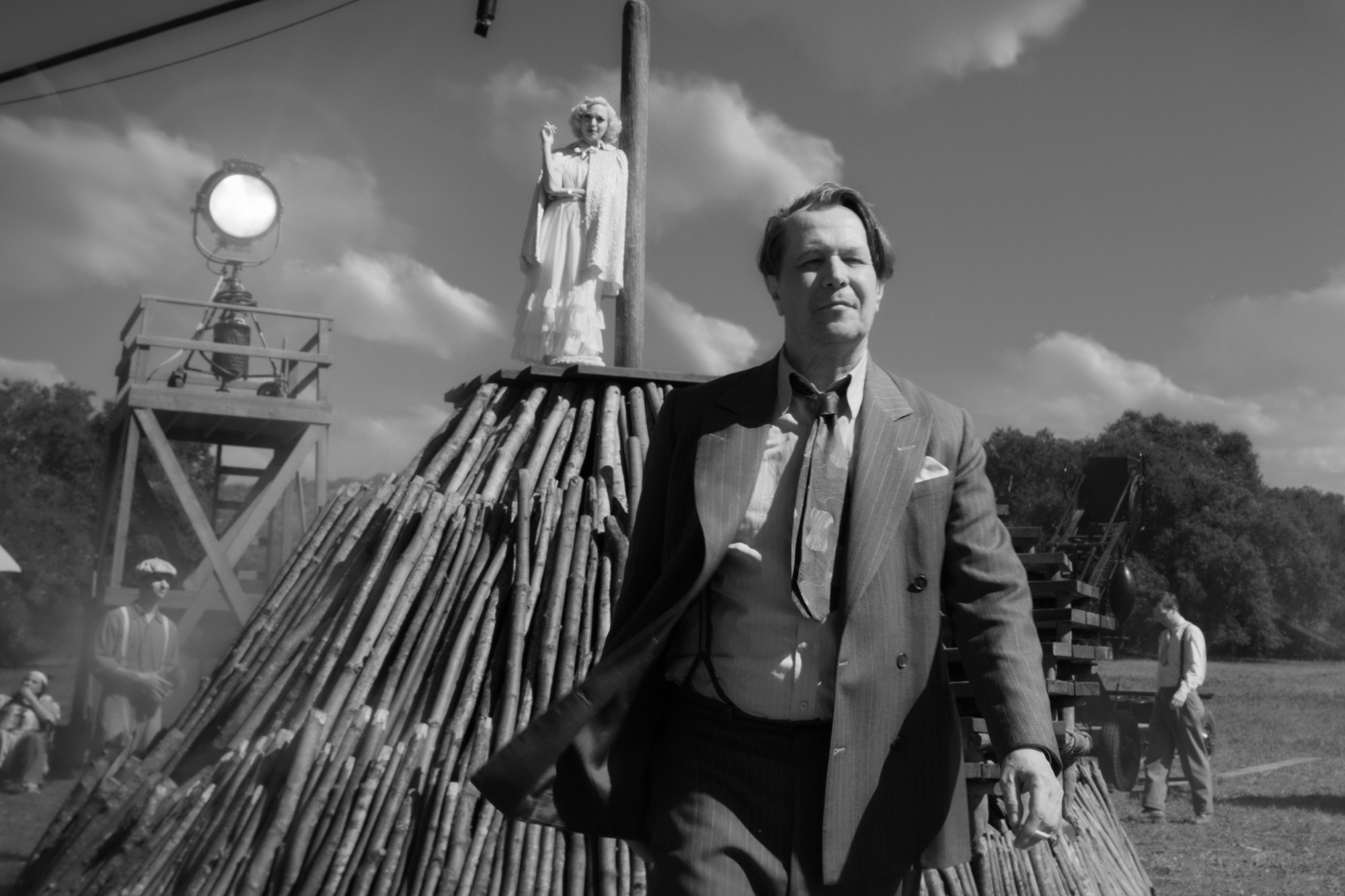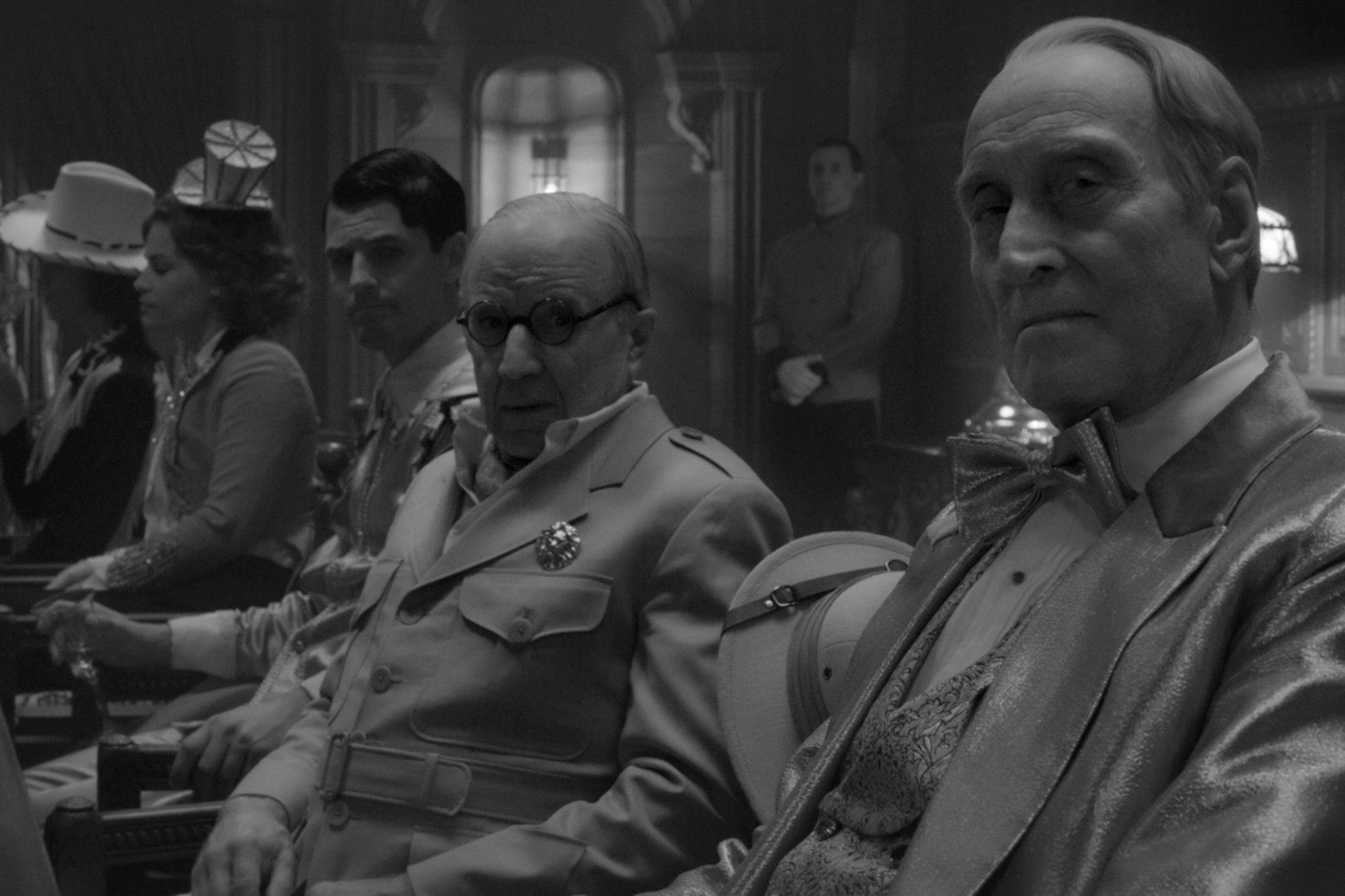More On: amanda seyfried
‘Mank’ review: David Fincher’s latest is the best movie of the year
‘You Should Have Left’ movie review: You shouldn’t have rented this
‘Scoob!’ review: Scooby-Doo reboot ruins a classic
Celebrities dress up for Met Gala 2020 at home
Every scene oozes intellect, but stops short of pretension.
“How ‘Citizen Kane’ got written” is an iffy elevator pitch for a film.
Such a niche idea might seem better suited to a PBS documentary, or a possibly fake tale from your drunk grandpa. And yet “Mank,” about the 1941 cinema classic’s co-writer Herman Mankiewicz, is the best movie of the year so far.
I know, I know. In a thin 2020, with the film business facing unprecedented hurdles, that probably sounds akin to saying “Tim is Antarctica’s best tennis player!”, but “Mank” would be an extraordinary achievement in any movie season.
Paeans to Hollywood are, generally speaking, pains. “Once Upon a Time In Hollywood” and “La La Land” were egregiously overrated, ego-driven projects that didn’t honor Los Angeles so much as their own directors. Ryan Murphy’s “Hollywood” on Netflix was a tacky mess. So, thank you, David Fincher, for getting the biz and the era right.
Fincher, whose cool-to-the-touch style has been so upfront in “The Social Network,” “Gone Girl” and the TV series “Mindhunter,” surrenders to his subject this time around. That’s Mankiewicz (Gary Oldman), a witty but misused studio screenwriter, socialist and raging alcoholic. Somehow, all that adds up to “fun!”
Mank hasn’t been doing his best work lately, and MGM bigwig Irving Thalberg (Ferdinand Kingsley) belittles him by saying, “He wrote one of our Lon Chaneys.”

But he attracts the attention of a 24-year-old hotshot named Orson Welles (Tom Burke, a spooky lookalike), who puts up the writer — bedridden from a car accident — in a secluded house in the Mojave Desert and tells him to write whatever he wants, and he’ll make the movie. The catch: Mank’s name won’t be on it.
Watching someone scribble in a house would get old fast, even with someone as captivating as Oldman holding the pen. So, the script of Jack Fincher (the director’s late father) shows us what inspired “Citizen Kane” in flashbacks. Namely, Mank’s complex relationship with power-publisher William Randolph Hearst (Charles Dance) and how he came to loathe the man.
Every scene oozes intellect, but stops short of pretension. Louis B. Mayer (Arliss Howard), a cheerleader for capitalism, has a hilarious speech in which he convinces an entire movie crew to take a 50 percent pay cut. “You may have heard MGM has more stars than the heavens,” he tells Mank and his brother Joseph. “Do not believe this. We have only one star: Leo the Lion.”

Another inspired moment comes when Mank and fellow famous writers Charles MacArthur, George S. Kaufman and Ben Hecht have a cynical pitch meeting in which they make up a new horror movie on the spot. Geniuses BS-ing their way to a paycheck.
The black-and-white film deepens, however, at Hearst Castle, the real life Xanadu from “Citizen Kane.” As socialist Mank strolls the lush grounds that express incomprehensible wealth and power with Hearst’s mistress, Marion Davies (Amanda Seyfried), Fincher transports us back in time in a way few filmmakers can. I rewatched “Citizen Kane” immediately after (it’s on HBO Max right now) and the visual transition was remarkably seamless.
That throwback is enabled by a bold choice from Fincher — to have the film’s audio sound cavernous and distant, like you might find in an old film. At first I thought my earbuds were broken, but the effect is amazingly cinematic. Even at home, you feel like you’re at the movies.
Direction and editing alone cannot drum up a stellar performance, and Oldman is sublime here. His Oscar for playing Winston Churchill in “Darkest Hour” was deserved, if predictable (“Wow! Look how fat they made him!”). This time he creates a character nearly from scratch. Few people have a frame of reference for how Mankiewicz looked or talked, and so the performance is much more real. When he spouts off Jack Fincher’s witticisms, you believe the actor thought them up on the spot.
One basic film trivia question most people get wrong is “Did ‘Citizen Kane’ win best picture?” It didn’t. The top prize in 1942 went to everybody’s favorite film “How Green Was My Valley.”
A win for Fincher’s film 80 years later would help correct that error.



















